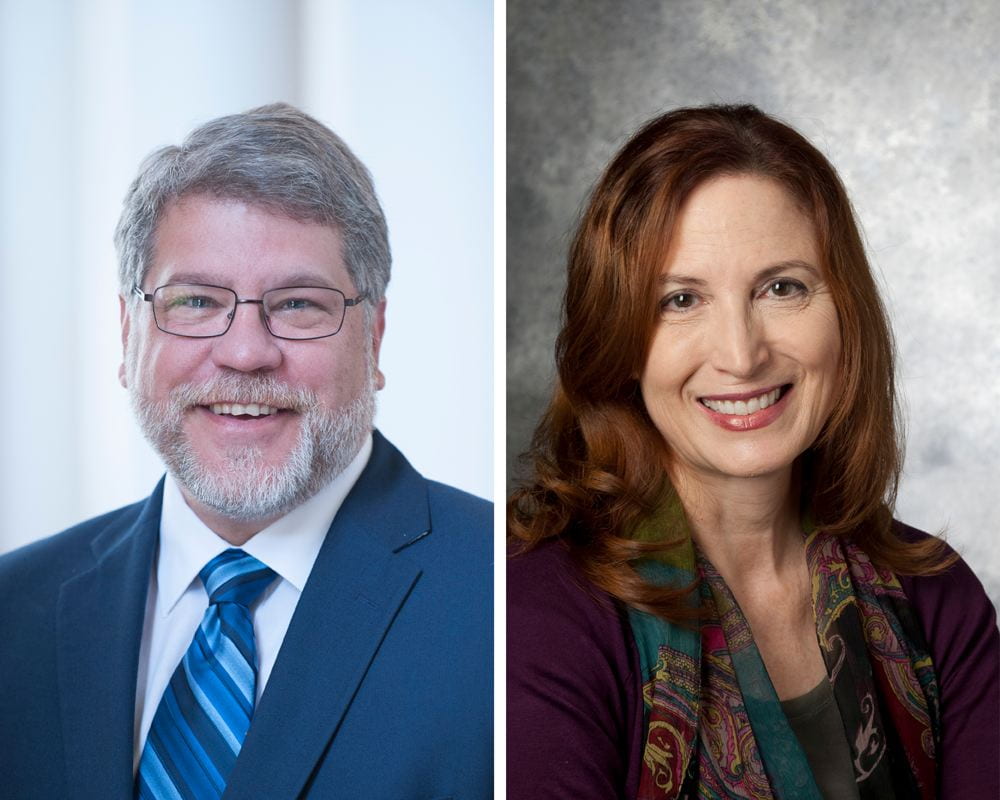Looking for some inspiring and informative reading for the holiday season? Check out the Center for Preaching Excellence’s new video series, “Must Reads,” featuring interviews of authors of books of interest to preachers.
“The Perkins Center for Preaching Excellence is committed to helping pastors as they strive continually to be effective and faithful proclaimers of God’s good news,” said Dr. O. Wesley Allen, Jr., Lois Craddock Perkins Professor of Homiletics. “We’re convinced that one element of that process entails reading good homiletical literature that pushes us to think in new ways about why and how we preach.”
The series launched November 12 with Allen’s interview of Rev. Dr. Lisa Thompson, author of Ingenuity: Preaching as an Outsider. Thompson is Associate Professor and the Cornelius Vanderbilt Chancellor Faculty Fellow of Black Homiletics and Liturgics at Vanderbilt Divinity School.
Must Reads is the third video series launched by the Center during the pandemic under the theme of “What’s a Preacher to Do?” The first focused specifically on Preaching During the Pandemic and the second on Preaching in a Pandemic of Racism.
“Due to the pandemic, we are pivoting to providing more online resources for preachers,” said Dr. Alyce McKenzie, Director of the Center. “For Must Reads, we chose books of interest to preachers, as they are seeking guidance and resources in these difficult days, given the challenges of COVID-19, racism and a divided country.”
In Ingenuity, Thompson introduces a theology and practice of preaching that emerges from the faith and wisdom of black women. In the Must Reads interview, she elaborated on the challenges that black women preachers face as perceived outsiders in the pulpit – as well as the gifts they can offer.
“The more people we get around the table, the more knowledge that we have, the more access we have to the holiest truth,” Thompson said.
Episode 2 featured David Ward, author of Practicing the Preaching Life (Abingdon Press, 2019) and Associate Professor of Homiletics and Practical Theology at Indiana Wesleyan University in Marion, Indiana. Ward views preaching as a spiritual practice – similar to prayer, self-care and justice-seeking – that can help form a way of life from which great sermons emerge.
“Ward recommends health and spiritual practices that preachers can follow, to help maintain their ability to fill others, rather than become empty vessels,” said McKenzie.
Other featured authors scheduled thus far include:
Joni S. Sancken, author of Words that Heal: Preaching Hope to Wounded Souls. Sancken is associate professor of homiletics at United Theological Seminary in Dayton Ohio and an ordained pastor in the Mennonite Church USA. She uses trauma theory and biblical theology to show how preaching can aid the healing process.
“We felt this was an important topic, because many people are experiencing loss, trauma, isolation and worry now,” said McKenzie. “The words of a preacher can connect with soul wounds in ways that are healing.”
Jerusha Neal, author of The Overshadowed Preacher: Mary, The Spirit, and the Labor of Proclamation (Eerdmans,2020). Neal is Assistant Professor of Homiletics at Duke Divinity School. She writes that, as the bearer of Jesus to the world, Mary was overshadowed by the Holy Spirit; today’s preachers are overshadowed as well. Her book is a thought-provoking challenge to a status quo that has historically privileged masculinity and whiteness.
Karoline Lewis, author of Embody: 5 Keys to Leading with Integrity (Abingdon 2020.) Lewis is Marbury E. Anderson Chair in Biblical Preaching at Luther Seminary and previously taught at Candler School of Theology, Columbia Theological Seminary, and Augsburg College. Her book explores how pastors and other leaders feel trapped in systems and institutions where actions and decisions often seem to have little to do with the scripture they read or the theology they profess. They are swept into leadership norms that resemble business models more than mission. She offers insights for those who struggle with a disconnect between their own theology and their leadership.
For more information and to view the videos, visit the Center’s website.
